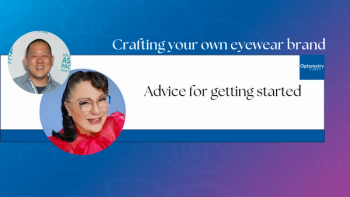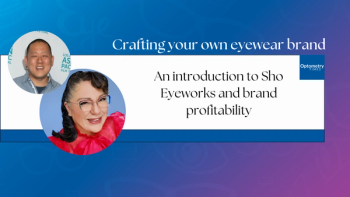
Practical management EP 12: Factors & indicators to watch out for when considering a practice purchase
As we near the end of this practice management series, Maria Sampalis, OD, discusses factors and indicators to watch out for when considering a practice purchase.
Maria Sampalis, OD, owner of Sampalis Eye Care in Cranston and Providence, Rhode Island, sat down with Optometry Times®' editor Kassi Jackson to talk all-things practice management.
Editor's note: This transcript has been edited for clarity
Jackson:
What key factors and indicators should be paid attention to when considering the purchase of a practice?
Sampalis:
For me, I think it's when you go in to look at a practice. I mean, you've got to see where where are their areas of growth potential? You want to know those numbers.
So if the optical is 50%, that's great. But if it's lower than that, what is happening? Are patients walking out? Are patients not purchasing glasses? Are they buying glasses online? Has there been a new competitor that's opened up next to them? Or is a doctor phasing out [and] not seeing a lot of patients because the doctor's ready to retire, and not working as hard? So that's important, too.
The doctor when I bought the practice was working about 5 days a week, and so what I did was I came in and I said, "Alright, I'm gonna see if I can see these patients within 3 days a week—maybe 3 and a half days a week—and be able to see these patients these days and have admin time for my staff to kind of clean up the mess from the day before when we saw 25 patients, and then also be able to have some admin time herself to evaluate the business." But also, if needed to, still have my other office that I could fill in and work at and kind of have income funneled into 3 days instead of 5 days.
It also saves on net revenue, too. You're not having staff just answering the phone and not generating revenue. So that's also important, and the office manager kind of needs an admin day to catch up and do that. So I think that's important, as well.
And the other thing is a lot of doctors don't utilize enough, but staff is very good and competent. Most of the technical stuff like visual field, OCTs, things like that, those can be done on off-schedule basis. Like you're you have your schedule, and then the office manager or the tech has their own schedule, too, just to see these patients. You can evaluate and see and see in between.
So working efficiently is super important in generating revenue, but also how you run a practice, how a practice might have been in the past, and how you can make those changes to implement good practices and good revenue.
Newsletter
Want more insights like this? Subscribe to Optometry Times and get clinical pearls and practice tips delivered straight to your inbox.





























